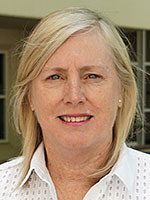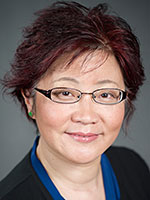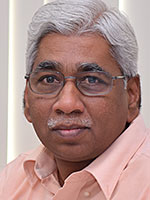What do MBA admissions directors want in applicants?

Simply sign up to the Business education myFT Digest -- delivered directly to your inbox.
Aspiring students applying to the world’s top MBA programmes face a selection process that is rigorous, to say the least. Even before candidates contemplate the detailed online application forms for their chosen schools, there is the graduate management admission test (GMAT) to contend with. Then would-be students must consider how to fund their course, while tackling assessed essays and pinning down the recommendations they need.
But who is applying to study for an MBA and what are business schools looking for? Schools report trends including an increasingly international mix of potential students and a rise in the number of women.
Crystal Grant, head of admissions at Imperial College Business School in London, says international diversity in the classroom has grown. She adds: “More candidates are also planning to launch entrepreneurial ventures or join start-ups immediately after their MBA rather than three to five years after.”
Ceibs, based in Shanghai, China, has a growing number of students who want to remain in Asia after graduation. “Sixty-four per cent of international students in the current class, to graduate in 2018, highlighted Shanghai and Asia-Pacific as their desired job locations,” says Yvonne Li, MBA director of admissions and career services. “This compares with 30 per cent in the previous class.”
MBA students are coming from a wider range of industries. Brandon Kirby, MBA recruitment and admissions director at Rotterdam School of Management, says more applications are from the non-profit sector, as non-governmental organisations start to behave more like businesses. “We have also seen an uptick in Latin American applications,” says Kirby. “And we are also seeing an increase in applications from the healthcare and legal industries.”
The slowdown in Australia’s mining industry has led to a rise in the number of applicants from the resources sector to Melbourne Business School, alongside more from those in the armed forces, says director of admissions Sally Forrester. “They are looking to reinvent themselves and transition into another industry.”
There is no one-size-fits-all answer to what schools want. A good GMAT score is not enough, so applicants need to research what their target schools are looking for. We asked some admissions directors what their schools want to see in an applicant.
Brandon Kirby
MBA recruitment and admissions director, Rotterdam School of Management, Netherlands

“We look for people who are dynamic in both their personality and their viewpoint, and are risk-takers. Are they pushing and challenging themselves? We want people who are looking to learn. We might see all the boxes ticked, but when we think about the classroom we need more than that.
I did an MBA so when I look at applications, I ask questions about emotional intelligence.
We want inquisitive individuals who want to make an impact — and by impact I mean within business, culture or the community. It is about business and leading others, but also about working with other people in complex organisations.”
Sally Forrester
Admissions director, Melbourne Business School, Australia

“It is not just about how smart you are — soft skills are very important. Our MBA uses a personal effectiveness programme to assess the development of these soft skills, such as self-awareness and communication skills, which our students tell us is valuable in helping them achieve their potential.
We look for students who are grounded, determined and motivated with a desire to learn and develop new skills [with] hard work and perseverance. Whether it is creating change, building a legacy or starting a business, we are looking for those who share a hunger for progress and are determined to improve themselves and the communities they serve.”
Crystal Grant
Head of admissions, Imperial College Business School, UK

“Finding original thinkers with a passion and a flair for innovation is important for us. We are experimental by nature. We recognise that real innovation comes from diversity and collaboration, so we look for candidates from a wide range of backgrounds who enjoy working in dynamic groups.
We want applicants who share Imperial’s vision of benefiting business and society — those who are risk-takers in business and also take risks in their views and actions on social impact, gender diversity, equality and lessening the gender gap.”
Yvonne Li
MBA director of admissions and career services, Ceibs, China

“We are based in one of the world’s most dynamic metropolises, Shanghai. Our location helps shape our identity. We provide world-class talent for inbound multinational companies or globalising Chinese enterprises.
We look for MBA students who can embrace the opportunities and challenges of working and studying in such a rapidly evolving market; so, in short, we are seeking students who can take the lead. We want the responsible global business leaders of tomorrow who will embrace China’s depth and global breadth.”
Hugues Contant
Director of admissions, Essec Business School, France

“At the MBA level, we have traditionally had strong specialisations — luxury brand management, hospitality, strategy and management. We are now merging these into a single programme which gives applicants a solid foundation in core business plus the opportunity to major in a particular area.
Applicants [want] core competencies but also sector-specific skills leading to clearly focused jobs, so what we are looking for is a correlation between an individual and a realistic project that we can help bring to fruition through increased knowledge, hands-on learning and international exposure.”
Professor Rajendra Bandi
Chairperson admissions, IIM Bangalore, India

“IIM Bangalore looks for people who, beyond having consistent academic excellence, are socially sensitive, self-motivated, willing to learn, accept responsibility, have good quality professional experience and who will be a good citizen both in an organisation and in wider society.
We want applicants with an entrepreneurial mindset who will not only be ready to take up leadership roles in responsible companies but be ready to accept the responsibility and accountability. We also want applicants who are good team players in cross-cultural teams.”
Comments